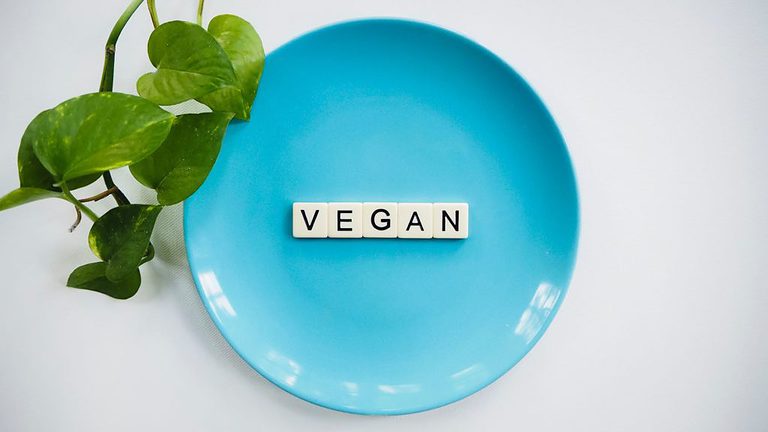Eating disorders are more common than you might think, affecting approximately 16% of Australians, with women affected more than men (NEDC).
They are a group of mental health conditions that can have serious nutritional, physical and medical implications. However, one aspect that I am seeing as a fertility dietitian & nutritionist, is the impact eating disorders are having on female fertility later in life, well into recovery.
So, many women ask the question, “can an eating disorder affect my fertility?” And I am answering this question in this post.
So, I wanted to invite an expert in the area of eating disorders to collaborate on this post with me, Talia Cecchele from Talia Cecchele Nutrition. Talia is an Australian dietitian now working in the UK and has extensive experience working with eating disorders, and she actually helped in part of my training as a dietitian too!
The two of us have put together this post to help those of you who have lived with an eating disorder understand the impact on your reproductive systems and potential impact on fertility. We have also written a blog on how to optimise your fertility through nutrition if you are recovering from an eating disorder or recovered and looking to conceive which you can find here.
How can an eating disorder affect your fertility?
Some eating disorders can result in very low body fat levels as a result of not eating enough or over-exercising. Having very low body fat levels causes the body to shut down a woman’s reproductive systems functions like ovulation (releasing an egg) and menstruation (a period) as a way to protect itself and survive.
A history of an eating disorder can increase your risk of hypothalamic amenorrhoea, which is the absence of a period as the hypothalamic-pituitary and ovarian axis has hit the snooze button, meaning your sex hormones like estrogen and progesterone are not being produced – which means no more ovulation and no more menstruation.

Excessive exercise and the psychological stressors of an eating disorder can trigger the flight, fight response and continue to propagate starvation behaviours. Similarly, the stress and pressure of trying to conceive are often associated with this adrenaline response in the body and some women end up skipping meals, not eating enough and as a result have irregular periods.
Remember, just because you don’t have a period, doesn’t mean you have a ZERO chance of conceiving – please use appropriate contraception if you intend to avoid pregnancy
There is also a lack of “raw materials” to build reproductive hormones like estrogen and progesterone, which are built from dietary fats. When we don’t eat enough fats such as those found in avocado, extra virgin olive oil, nuts, seeds, oily fish and other protein foods, it can also contribute to these hormones not being made, a healthy regular menstrual cycle completely stopping and therefore the ability to conceive unassisted is lost.

Looking beyond the scales
Part of eating disorder recovery is not just restoring body weight to a target range but also the return of healthy and regular menstrual cycles. Sometimes, this does not occur despite meeting weight goals or normalising physical health. For some, this may be due to severe restriction of energy from food and low weight during the critical window in adolescence where puberty would have occurred which can make it additionally challenging for a regular menstrual cycle (and ovulation) to return.

However, it is not just low body fat levels that can affect ovulation and fertility, the most common form of eating disorder is not anorexia nervosa (AN) or bulimia nervosa (BN) but it is in fact, binge eating disorder (BED) and Other Specific Feeding and Eating Disorders (OSFED).
Listen to my podcast episode with Darian Bates on her podcast, Unconventional Wisdom on the impact eating disorders can have on fertility here.
BED and OSFED are not associated with any particular body size, however, if you do have a higher proportion of body fat, this may interfere with hormones and ovulation too. Working with a dietitian who understands that a restrictive weight loss approach is not sensible in this situation whilst helping you repair your relationship with food and optimise your diet for fertility and menstrual regularity is key.
It is also important to note that many women report gut symptoms during recovery (even after weight is restored) such as bloating, gas, diarrhoea and general discomfort – commonly referred to as irritable bowel syndrome (IBS). It is important to minimise dietary restrictions to tackle these types of symptoms to avoid triggering intrusive eating disorder thoughts, dietary rules or behaviours.
If you have been recommended a low FODMAP diet, please do not encounter this alone as it can be extremely restrictive and we have worked with many women whose eating behaviours have relapsed as a result of the nature of this diagnostic diet. We would always recommend seeking advice from a Registered Dietitian or Accredited Practising Dietitian first to discuss your options, especially as restricting dietary variety when trying to conceive can limit key nutrients that are needed during pre-conception and early pregnancy to support the growth and development of a healthy bub!
Recovery, physically and mentally, will help support conception
During pregnancy your body is going to change physically, and for some women with a history of an eating disorder, it can be quite distressing. Seeking advice from a mental health care professional for support is key to develop strategies to help manage negative thoughts or feelings and prevent relapse of eating disorder behaviours during pregnancy.
Prenatal Supplementation
It is recommended that all women supplement a minimum with folic acid and iodine at least 1-3 months before conceiving to boost stores before pregnancy. If you are weight restoring with the goal of getting your period back and falling pregnant, it might be worth taking a pregnancy supplement during this process just in case. You can read more about how to choose a prenatal vitamin here.
You may also need to work on key nutrient restoration like iron, B12 and vitamin D based on your blood results, please speak to a dietitian to discuss your individual needs.
You can book in for a tailored prenatal supplement plan consultation here.
If you are currently recovering from an eating disorder and planning pregnancy, it is strongly recommended that you stabilise your eating disorder or in remission before falling pregnant due to the risk it has on your fertility and wellbeing. If you are trying to gain weight, there are lots of tips on how to do this in this blog. It is important to eat balanced meals and nourish your body to support you and your baby’s wellbeing.
If you want to read more about how nutrition can play a role in your fertility, head over to Talia’s website to read our blog!
You can find Talia on Instagram @tcnutrition and Facebook @taliacecchelenutrition and visit her website to learn more about Talia, grab her delicious recipes and get in touch to help you on your eating disorder recovery journey!







